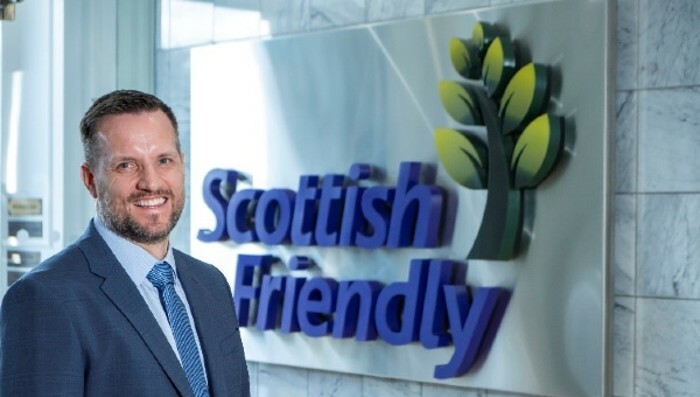
Following the release of Scottish Friendly's Investor Index, we caught up with Stephen McGee, CEO at Scottish Friendly, for further insight on the findings.
Can you give us a quick summary of the investor index?
The Scottish Friendly Investor Index tracks sales of the company’s junior and adult investment ISA policies and the total values of these new policies among its UK-wide customer base, with quarterly sales activity measured against a base rate of 100.
Demographically, the index can be split by gender, age and region, and was first launched in the first quarter of 2019. Since then it has monitored Scottish Friendly’s changing customer behaviours before, during and coming out of the pandemic.
Our data shows customer behaviours have changed dramatically since entering lockdown and the investor index has been closely tracking these movements in behaviours.
Over the timeframe when many UK households savings increased due to lockdown and being unable to spend on the things they were used to spending on, like eating out, saving for holidays and spending on the high street, we noticed a significant increase in the disposable income of many UK households. Then there was the spending splurge once highstreets and restaurants opened up when households started spending their pent-up cash.
The index during this period saw increases in both the number of new policies being opened as well as the amount people were able to put into their ISA products. We’re now at a period where rising living costs due to high inflation and the UK entering recession are making it far more challenging for many households to keep up with the amount they are able to afford to put away and the signs are telling us that this may be the case for quite some time.
Why is conducting this research and these findings of particular importance at this time?
UK households are walking a tightrope - balancing the rising cost of living with putting money away for themselves, so it is important that we monitor the changing behaviours of UK households and better understand the challenges they face so that we, as an industry, are better placed to support.
The sum of money that households have available to save or invest has shrunk significantly over the past 12 months, as their outgoings have shot up.
However, what is encouraging is the growth we have seen in the number of Junior ISA investments, which shows no signs of slowing.
Investing little and often – small amounts of money on a regular basis – may be more achievable for a lot of families at this moment in time.
One of the common myths about investing is that it is only for the wealthy and well-advised, but it doesn’t need to be large sums. By drip feeding as little as £10 a month, investors can find that the pounds could soon start to add up.
We want to support as many families as possible to achieve financial security and prosperity, and these latest figures are a positive sign that although times might be hard, people are on the right track.
We’re dedicated to educating individuals and their families on the importance of trying to save and invest wherever possible, and using a little and often, or stepping stone approach, where you increase your monthly contributions annually may provide you with the best chance of building long-term growth.
Tell us about the most surprising facts/headline stats to come out of the report?
The latest set of results are quite striking despite the rising cost of living challenges we continue to face in the UK.
The most recent quarterly data available covers the period Q3 2022, showing a record number of Junior ISA investments were opened, despite households having less money to save.
The number of Junior ISA policies opened in the three months to September rose 48% year-on-year to reach their highest level since the index was first produced at the beginning of 2022.
However, the average value of these new policies fell 38% year-year-year in the third quarter, which suggests that despite growing commitment to save for their children’s future, families have less money at the end of each month to invest.
Inflation is the most likely cause, as it has risen from 2% at the start of Q3 2021 to 10.1% in July 2022, eroding a significant portion of what households can afford to save.
In addition, recent research from Scottish Friendly and the Centre for Economics and Business Research (CEBR) estimate that families saved an average of just £17 per week in Q3 2022, a drop of 74% compared with Q3 2021.
The research also found that real savings reached their lowest level since 1976 last quarter as they fell to -9% in July 2022. This has coincided with the growth in popularity of Junior stocks and shares ISAs, but in sharp contrast to this, adult investment levels have dropped.
Between Q3 2021 and Q3 2022 Scottish Friendly’s new policy sales for its adult investment ISAs were down 22% while investment values fell to their lowest level since 2019.
Are there any actions/ next steps that could be taken by the financial services industry or government in response to the report’s findings?
We are now entering a new level of uncertainty due to the impact of the war in Ukraine and as we continue to move away from the worst of the pandemic we are under no illusion that these difficult times will continue for the foreseeable future.
However, trying to save and invest for the future, wherever possible, will help to provide UK households with a better chance of securing a brighter future.
This is why we strongly believe that the financial services industry, alongside Government, need to do more to educate consumers of the importance of saving and investing, and to help dispel the myths that investing is always expensive and only for the wealthy and well advised.
However as difficult as it may be for many household incomes at this moment, there may be alternative options available that haven’t been thought of, such as asking other family members, like grandparents to contribute towards Junior ISAs. This could be a good way to help kick-start child savings whilst those who can’t afford to save and invest due to increasing living costs whilst mum and dad find their feet. However financial services in the UK doesn’t make this easy because currently, the only individuals who can open a Junior ISA are parents or guardians of the child, so we have to think about ways to ‘nudge’ them to first open the product and then pass on instructions to the grandparent to take over.
Do you have any case studies relating to this report for journalists to use? If so, how can they get in touch to arrange using these?
Scottish Friendly understand the importance of bringing stories to life with real case studies. Due to the nature of the current environment, with interest rates and inflation changing regularly, and more generally rising costs, we do not have an on-the-shelf approach, and instead approach customers at the time of asking. Journalists can however request case studies by emailing kevin.brown@scottishfriendly.co.uk or by calling on 07512194336.





Please sign in
If you are a registered user on Headlinemoney, please sign in